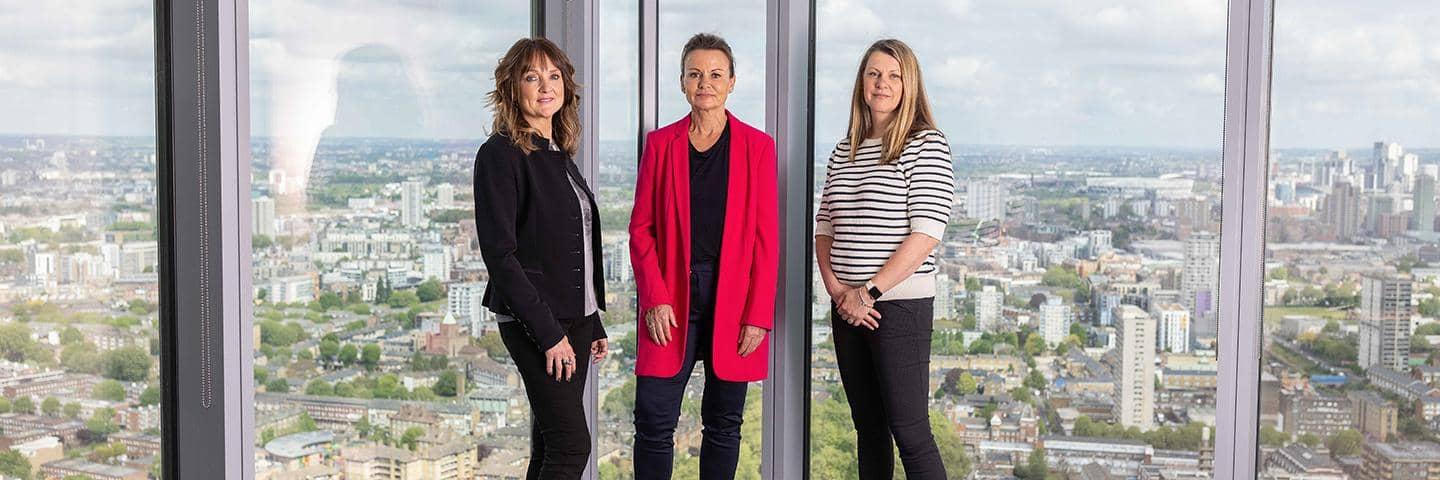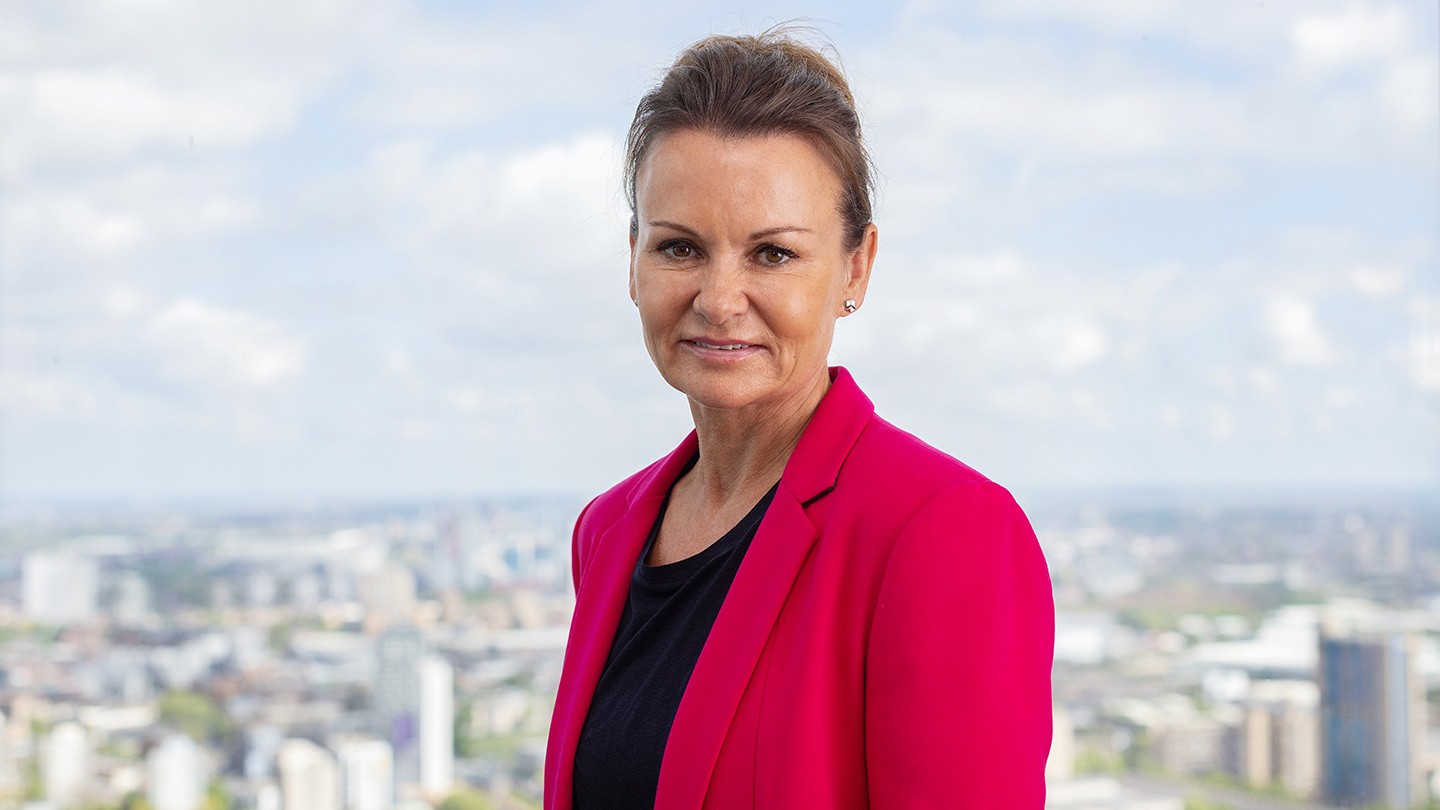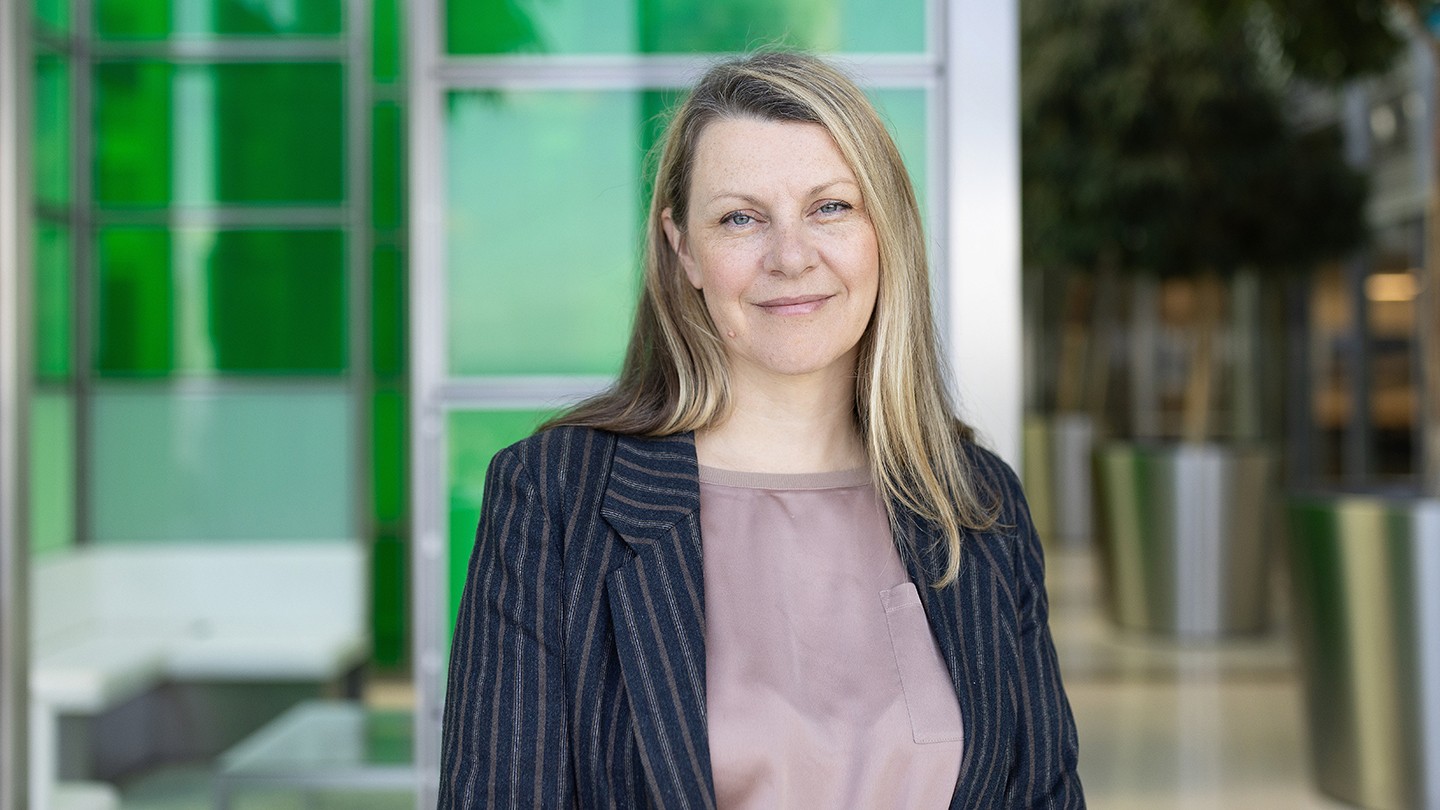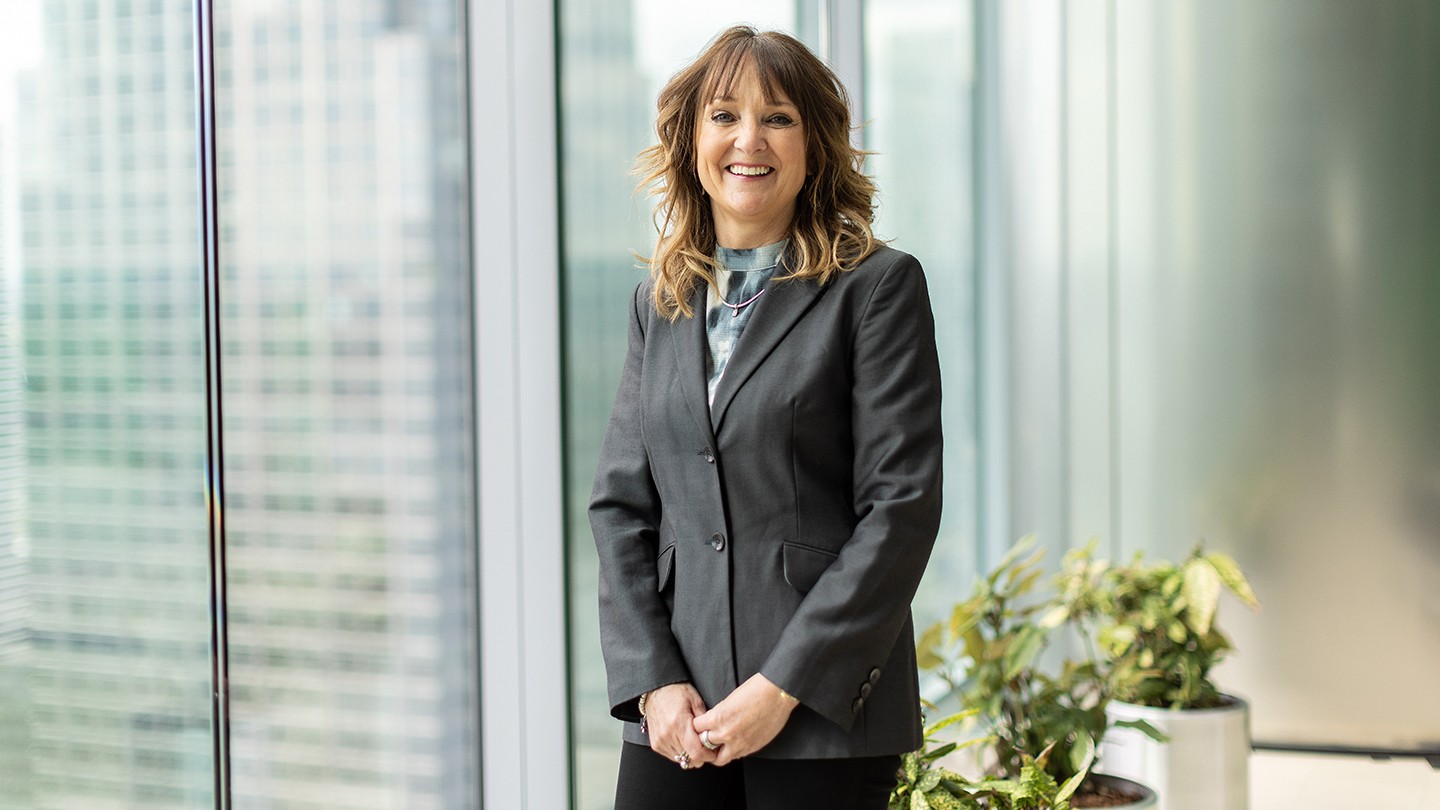
Why menopause support is crucial to retaining top talent
26 May 2022
What needs to be done to support people going through the menopause – and why is raising awareness around the topic so crucial? We talk to May Mackay, Alison Stanley and Rachel Webster about their work on initiatives at Barclays, supporting colleagues experiencing symptoms and what needs to change in the industry.
“I was having panic attacks at work, sweating and experiencing brain fog – and I nearly left. I almost became one of the 10% of women who leave because they believe they cannot continue to work.”
May Mackay, a Programme Director in Risk Finance Technology and Co-Lead of the Women’s Health Working Group, is describing her experience of perimenopause. It’s a precursor to menopause – a physical transition that takes place when menstruation ends.
Luckily for Mackay – and indeed for Barclays – she was persuaded to stay by a colleague who reminded her that she was too good to leave. “But I believed I was done,” she says. “I was in a mess.”
It’s a feeling that is only too familiar to Alison Stanley, a Service Transition Manager based at the Barclays Technology Centre in Radbroke. Stanley is Co-Lead of the Menopause Workstream – one of three streams within the Women’s Health Working Group (the other two focus on fertility and gynaecological conditions).
“When I hit the post-menopause period, I really started to struggle – especially as it coincided with working at home during COVID,” remembers Stanley. “I would wake up in the night stressing about things I wouldn’t normally worry about. You feel inadequate, and you start to doubt yourself and your abilities.”
"There isn’t a simple guide to going through menopause”
According to Menopause Support, a not-for-profit community interest organisation, approximately 13 million women in the UK are either peri- or post-menopausal, and symptoms can last for up to 15 years. One in four women will experience severe debilitating symptoms, including depression and anxiety – yet two-thirds say there is a general lack of support and understanding.
“During menopause, a lot of people can’t, and don’t, cope – I couldn’t,” continues Mackay. “But we all go through it. Some experience it early because they have surgical menopause. Many transgender people go through menopause. We have to make sure that conversations about it are not uncomfortable.”

Webster’s Take A Pause support group for people experiencing menopause now has 250 members.
“The trouble is, there isn’t a simple guide to going through menopause,” adds Rachel Webster, a Business Support Manager at Barclays Private Bank. She’s also the founder of the Take A Pause support group, which offers colleagues going through the menopause the chance to have informal conversations about their experiences and share advice.
“As we get older, we gain more knowledge and experience in our jobs,” she says. “But menopause prevents many women from seeking promotion. Being able to openly talk about it, and admit you’re not feeling at your best, makes you feel empowered.”
In particular, supporting colleagues experiencing menopause is a crucial part of talent retention within the industry. “Women in the menopausal age bracket – typically, from mid-40s to 50s or even 60s – are the fastest-growing working group within society,” Mackay says.
“Barclays needs, and wants, more women in senior positions, so it's really important to consider what’s happening to women in that age category. Providing the right amount of support and education – for co-workers, line managers and partners, as well as those going through the menopause – means people are less likely to leave the bank.”
A strategy for support
Mackay, Stanley and Webster have all been part of a collaborative effort to develop global activities around menopause support across the bank, raising awareness of the challenges associated with symptoms and developing a toolkit to effectively support colleagues.

Mackay says she is keen to ensure colleagues are able to “bring their whole selves to work”.
Last year saw various strands of menopause support within the bank cleverly woven together, thanks to a plan developed by teams across Barclays, including May Mackay and Jasmina Negrini, who had been paired in a Women in Leadership initiative.
“We implemented a top-down approach to menopause support to meet the grassroots networks that already existed, to show colleagues that Barclays fully stands behind it,” explains Mackay.
Part of this effort includes bank funding for specialist menopause support, which allows colleagues to access information from expert practitioners, video consultations, peer support groups and monthly live events.
Mackay also cites the bank’s Human Resources hub which offers information about menopause; training around supportive line-management and menopause in the workplace; and a dedicated menopause section within the bank’s global Be Well intranet portal – all of which can be accessed by colleagues around the world.
Raising awareness has been a key priority, and a summit with online events, webinars and external speakers, organised at Barclays for World Menopause Day in October 2021, reached thousands of colleagues. But support continues at grassroots level, too. During lockdown, Webster’s Take A Pause sessions were taken online – and snowballed. “Two years ago, we had 10 women for fortnightly, in-person get-togethers in London. Now we have 250 members. There are Northampton and Northwest support groups, among others, and we all link in. It’s a really good way of helping people to share experiences and better understand their own symptoms.”
All this work is encouraging new conversations on the topic – and the Menopause Working Group was selected as a finalist from more than 700 nominations in this year’s Barclays Citizenship and Diversity Awards, which celebrate colleagues making a positive impact in communities or helping to strengthen the bank’s supportive and inclusive culture.
Making conversations around menopause feel normal
Looking forward, Mackay, Stanley and Webster are all focused on keeping menopause awareness high on the corporate agenda.
“We want to retain and attract amazing, intelligent colleagues – who just happen to be going through menopause,” says Mackay. “And we want them to know that at Barclays, they’ll be supported. It’s a really important way to help deliver our diversity and inclusion agenda.”

Stanley hopes that the topic of menopause can “become normalised” in the workplace.
Stanley has equally ambitious goals: “I would love to see Barclays continue its supportive menopause culture where colleagues know they are working for a company who cares,” she says. “If the topic becomes normalised, and everybody feels comfortable, then fewer women will leave their jobs or be off sick for extended periods of time because they can’t cope.”
“I just want to make sure that they can bring their whole selves to work,” adds Mackay, “and be successful without having to hide who they are. That would make me very happy.”
Win: Women’s Health Working Group
The Women’s Health Working Group (WHWG), part of Barclays’ gender resource group, Win, has brought together a number of different grassroots support groups across the UK. Its aim is to develop and implement a strategic approach to support reproductive health conditions in the workplace, with support from Be Well – the bank’s global wellbeing programme. The Menopause Workstream sits alongside two other working groups: Fertility and Not Just a Bad Period, which covers gynaecological conditions like endometriosis.
Barclays Citizenship and Diversity Awards
This year marks 25 years of the Barclays Citizenship and Diversity Awards, which recognise and celebrate colleagues around the world who are making a positive impact in communities or helping to strengthen the bank’s supportive and inclusive culture.